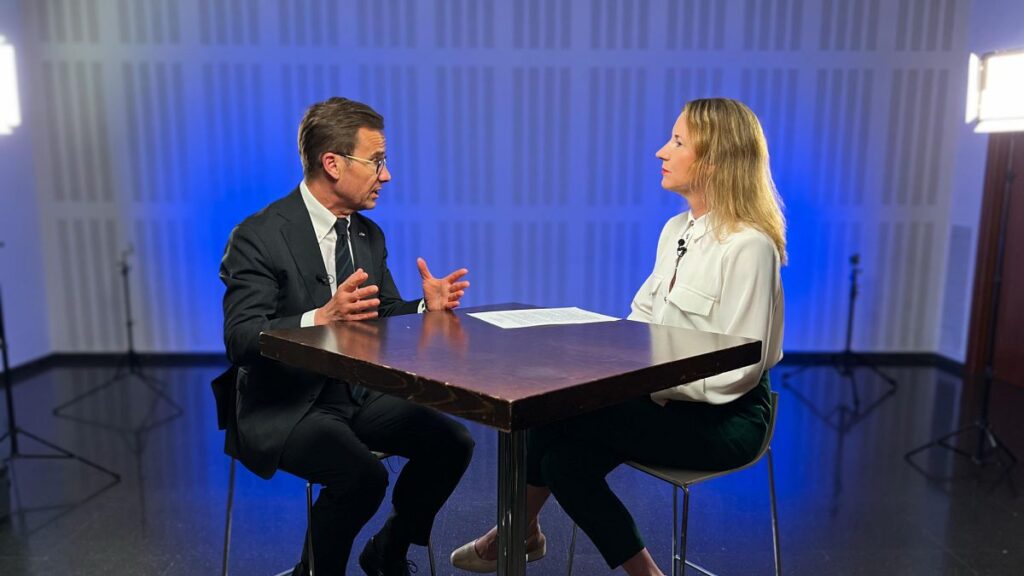The centre-right leader of Sweden had just touched down in Valencia to join his party members from all over the continent when news of another deadly incident in Sweden emerged.
Tuesday, the first day of the EPP Congress, coincided with yet another shooting, this time in the city of Uppsala, adding to the ongoing wave of gang-related violence in Sweden.
In an interview with Euronews, Ulf Kristersson said he had made “enormous efforts to increase the police’s capabilities to find them, stop them and to use all different methods to detect them before they commit their crimes”. He insisted that the amount of shootings were decreasing but were not over yet.
But Sweden’s security issues are not only internal, following several underwater cable incidents in the Baltic sea during the last few months. The damage is believed to result from ships dragging their anchors along the seabed. Kristersson refrained from assigning responsibility, but noted that the circumstances raise suspicion.
However, he said that when he speaks to people acquainted with the conditions on the Baltic Sea, they say the chance that vessels might drop their anchors without noticing and suddenly damage cables – “that simply does not happen.”
In response to the security situation following Russia’s full-scale invasion of Ukraine, Sweden also became the latest member of NATO in March 2024. A couple of months later, Donald Trump was elected US President, prompting questions about the country’s reliability in the face of a potential aggression against European allies. The Prime Minister has no doubts however.
However, the US is not the only NATO ally raising concerns.
Swedish journalist Joakim Medin was recently arrested in Turkey and charged with insulting the President and belonging to a terror organisation.
“The fact that NATO countries have different opinions on various issues is nothing new,” said the Prime Minister. adding that Sweden and Turkey have very different views on freedom of speech.
The trial is ongoing, and the legitimacy of the case has been widely criticised by politicians and human rights organisations.
Read the full article here
